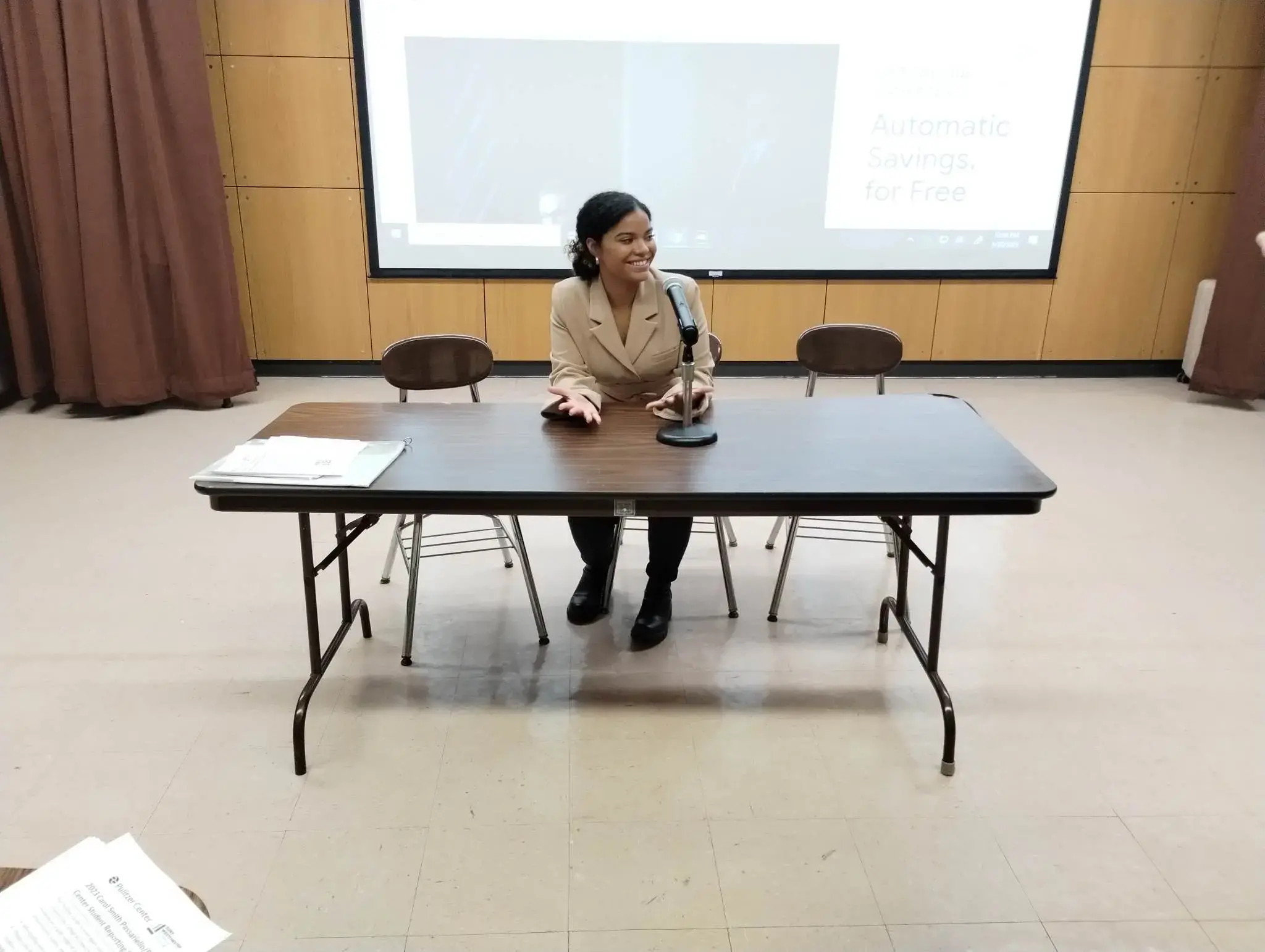SUNY Westchester Community College (WCC) students and faculty gathered to speak with Washington Post political reporter and Pulitzer Center Reporting Fellow alum Camila DeChalus.
After a brief introduction by Professor Eric Luther, WCC’s curriculum chair of journalism, DeChalus began her conversation by describing her philosophy as a political reporter. She spoke at the WCC campus in Valhalla, New York, on March 22, 2023.
“I always like to say that I cover the intersection of politics and people, but really emphasizing on the people and trying to hold the people accountable who are actually making the policies themselves,” DeChalus said.
Her most recent way of doing this was making bite-size politically informative videos on TikTok and Instagram. DeChalus also gave an example of how she found those she interviewed in a more recent TikTok post for students who may be having problems finding sources.
Covering the controversy surrounding New York Congressman George Santos, accused of repeatedly lying about his life and career, DeChalus talked to constituents of his district who were waiting for buses or trains.
While waiting, people are often bored, DeChalus said, making journalists' questions a welcome distraction. One individual told her of an impromptu town hall-like meeting in someone’s basement, which led DeChalus to content for a recent post. To find a specific individual, DeChalus recommends finding a place they frequent or are likely to pass by, and approaching them there.
Finding people, though, isn’t enough, she said. When interviewing, DeChalus said, asking, “What are you doing?” or commenting on a book they are carrying can help break the ice.
Other times, a source can be excited to talk, but is long-winded.
When asked how to handle this type of situation, DeChalus said she prefers to let the person talk for a few minutes and then ask, “If you were to say this in a minute or 30 seconds, what would you say?” This lets them know you are interested in what they have to say, while politely telling them to be brief, DeChalus said.
Students also asked for advice on what to do if a source asks that previously agreed-upon footage not be used. In this situation, DeChalus' first step is to ask the person for a reason. Next, she recommends asking if it would make them more comfortable to have their faces blurred and names kept anonymous. However, if a figure in power, such as a CEO or political leader, asks you to delete footage that they had previously consented to, DeChalus says that you probably just discovered something that the public should know.
The WCC staff and students held a luncheon afterward to thank DeChalus for her advice. She continued to speak with students one-on-one and give individualized tips to the young journalists.




